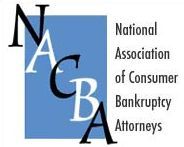Can they take my car?
In most cases, the answer is no.
A trustee is not permitted to take your car unless it is worth more than the law allows you to protect in bankruptcy, and the law gives you more than one way to protect it. If there is a loan against the car, you determine what the car is worth by subtracting the amount of the loan from the amount the car could sell for. The amount you can protect does vary, depending on the state you live in, and the amounts increase from time to time.
At Seelinger Law, we check the value of a client’s car and compare it to the amount you can protect BEFORE advising our client to file for chapter 7 bankruptcy. We look at the available options for protecting the car, and only recommend chapter 7 if the trustee will NOT be able to take it. In chapter 13 bankruptcy, the trustee never takes your car, so we consider chapter 13 if our client has a very valuable car, or for that matter, if our client has any assets worth more than we could protect from the chapter 7 trustee.
Can they take my pension?
Usually, the answer is no.
Most pensions are protected under the bankruptcy laws. There are several ways that pensions are protected in bankruptcy. You may be currently receiving pension payments which you earned at a former job, or you may still be working, with your future pension benefits growing in amount, to be paid to you after you retire. The pension plan itself may or may not meet certain requirements of federal tax laws concerning pensions. The exact type of pension you have determines which of the bankruptcy laws will protect the pension.
If what you are calling a pension is actually a benefit you are entitled to under a former employer’s plan that did not meet Internal Revenue Service requirements for full protection, the amount you can protect may be limited to the amount you will need to pay for your living expenses. This is far less common. At Seelinger Law, we find out enough about your pension to know if there would be any problem protecting it from a chapter 7 trustee, before recommending that you file chapter 7.
Can they take my guns?
Not usually. The bankruptcy laws limit the value you can protect by category, like a house, a car, electronics, jewelry, etc. As to an asset for which there is no specific category of exemption, such as guns, bank accounts, artwork, antiques, to name a few, the Bankruptcy Code allows you to protect such things by using the “wild card” exemption. It is called the wild card exemption because it can be used to protect any kind of asset. The amount of the wild card exemption is limited, though.
If you have a large gun collection, the total value might exceed the wild card exemption. If so, a chapter 7 trustee could sell some of the guns, while you could keep any guns which can be exempted using the wild card.
At Seelinger Law, we review the value of our clients’ guns before filing a bankruptcy case, and if some of the guns would be worth too much to protect with the wild card, we explain that to our clients before filing a chapter 7 case. When the guns cannot be protected in chapter 7, we explain that a chapter 7 trustee could sell the guns to pay creditors, and discuss filing a chapter 13 bankruptcy instead. The chapter 13 trustee cannot take or sell your guns.
If the value of any of your assets exceeds what you can protect in a chapter 7 bankruptcy, chapter 13 is an alternative to consider.
You might not own anything too valuable to protect with exemptions, and in that case, you can file a chapter 7 and keep all of your things. However, if your assets are worth enough to risk having any of them taken and sold by the chapter 7 trustee, you can eliminate that risk by filing a chapter 13. In chapter 13, you make payments to the chapter 13 trustee over a period of 3 to 5 years to be distributed to unsecured creditors, in exchange for keeping your things.

